Poll: Why Voters Support More Clemency
New polling shows broad voter support for clemency and the president’s use of commutation power to promote rehabilitation, consistency, and mercy.

Executive clemency is a powerful but underused tool for reducing needless incarceration and reuniting people with their families and communities. Indeed, recent polling from polling from Data for Progress and The Lab showed strong, bipartisan support for the president and state governors to use clemency far more aggressively, categorically reducing prison sentences as a way to address mass incarceration and racial injustice.
But which rationales for clemency do voters find most persuasive? Do people favor clemency because it facilitates and rewards rehabilitation? Or because it is necessary to ensure consistency, both in terms of reducing racial disparities and bringing older sentences in line with current sentencing practices? Or do voters see clemency primarily as an act of mercy?
As it turns out, voters endorse expanding clemency for all these reasons.
In a new poll, we tested various arguments for commutation, asking voters which they found convincing. Based on these arguments, we also compared support for “the president using his clemency power to shorten the sentences of people serving excessive sentences who do not pose a threat to public safety.” For each argument, the level of support for using the clemency power in this way correlated with how convincing they found the message, with rehabilitation resonating the most, followed by consistency, and then mercy.
While results varied slightly from one argument to the next, our polling shows that clemency broadly appeals to American voters, and that voters support the president’s use of his commutation power to promote rehabilitation, consistency, and mercy in our criminal legal system.
Voters responded most positively to the argument that commutation matters as a tool for rehabilitation and reentry.
- 77 percent of voters, including 83 percent of Democrats, 79 percent of independents, and 71 percent of Republicans, found convincing the argument that using commutation power for those who do not pose a threat to public safety can be part of the rehabilitation process, allowing people to rejoin society, work, and live with their families again.
- Based on the above argument, 71 percent of voters, including 82 percent of Democrats, 78 percent of independents, and 57 percent of Republicans support the president using his commutation power to shorten the sentences of people they think are serving excessive sentences and do not pose a threat to public safety.
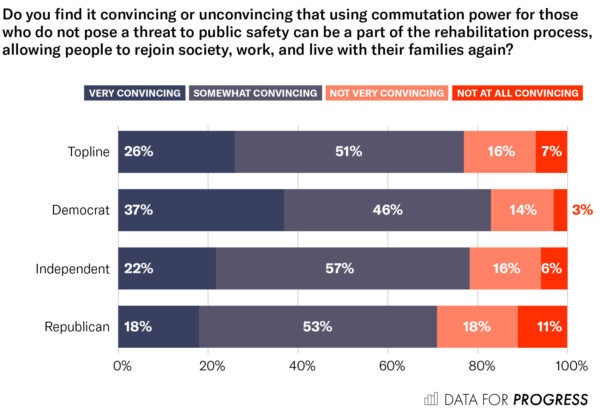
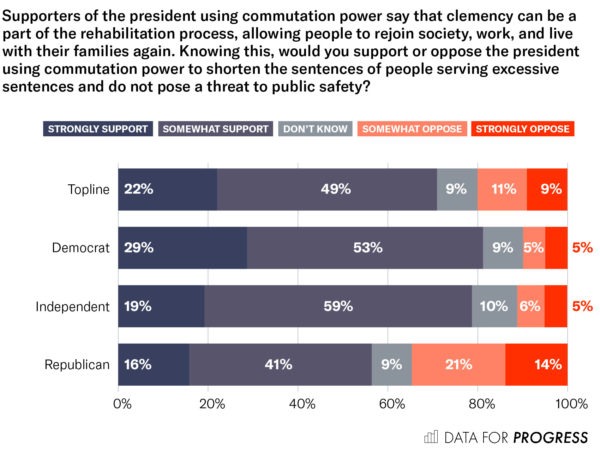
Voters also agreed that commuting sentences is important to maintain consistency and ensure that individuals are not punished more than what the law requires.
- 73 percent of voters, including 80 percent of Democrats, 76 percent of independents, and 65 percent of Republicans, found convincing the argument that using [commutation] power for those who do not pose a threat to public safety is necessary to ensure that old prison terms are consistent with current law. If someone is serving a prison term that, under current law, would have already expired, or that would not have been imposed in the first place, the commutation power can correct that.
- Based on the above argument, 64 percent of voters, including 67 percent of Democrats, 67 percent of independents, and 61 percent of Republicans support the president using his commutation power to shorten the sentences of people they think are serving excessive sentences and do not pose a threat to public safety.
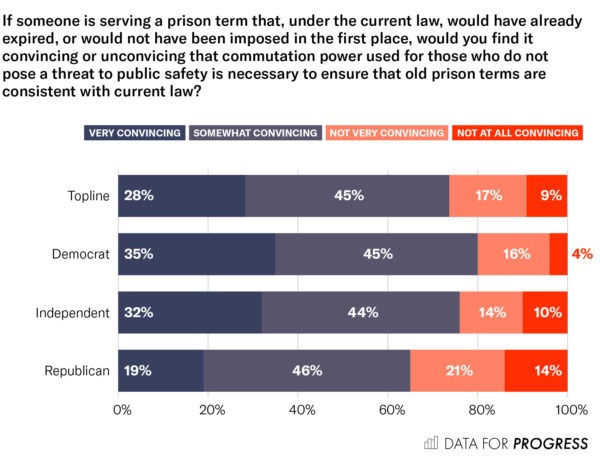
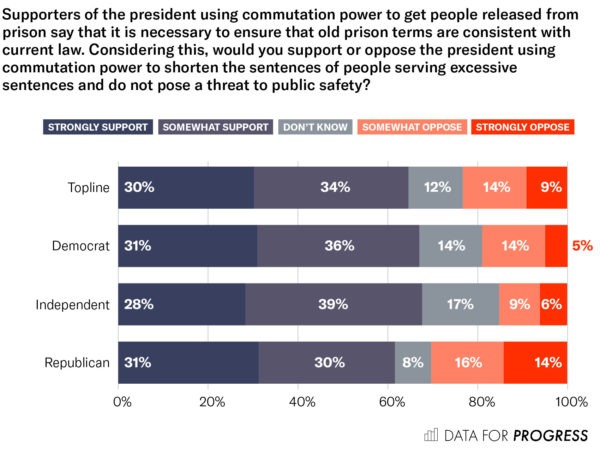
Voters also recognized the need for mercy in our criminal legal system.
- 64 percent of voters, including 71 percent of Democrats, 67 percent of independents, and 54 percent of Republicans, found convincing the argument that using [commutation] power for those who do not pose a threat to public safety is an act of mercy. While punishment is part of how we respond to crime, there must also be forgiveness.
- Based on the above argument, 63 percent of voters, including 73 percent of Democrats, 63 percent of independents, and 48 percent of Republicans support the president using his commutation power to shorten the sentences of people they think are serving excessive sentences and do not pose a threat to public safety.
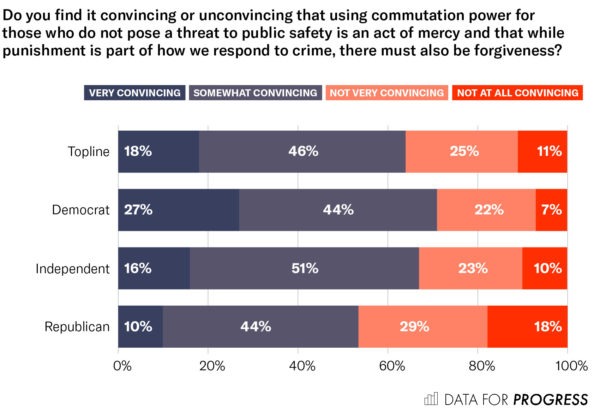
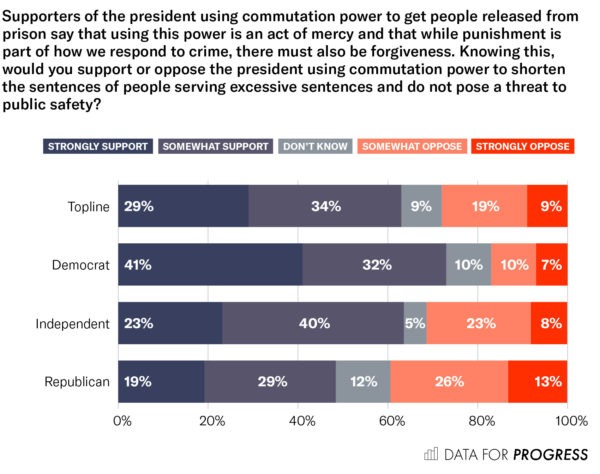
Polling Methodology
This polling memo combines data from two polls.
Questions relating to voters’s support for using clemency power to shorten the sentences of people serving excessive sentences who do not pose a threat to public safety are collected from a survey of 1138 likely voters nationally using web panel respondents conducted by Data for Progress from April 16 to April 19, 2021. The sample was weighted to be representative of likely voters by age, gender, education, race, and voting history. The survey was conducted in English. The margin of error is ±3 percentage points.
Questions relating to whether voters find arguments for clemency convincing are collected from a survey of 1,402 likely voters nationally using web panel respondents conducted by Data for Progress from April 30 to May 2, 2021. The sample was weighted to be representative of likely voters by age, gender, education, race, and voting history. The survey was conducted in English. The margin of error is ±3 percentage points.

